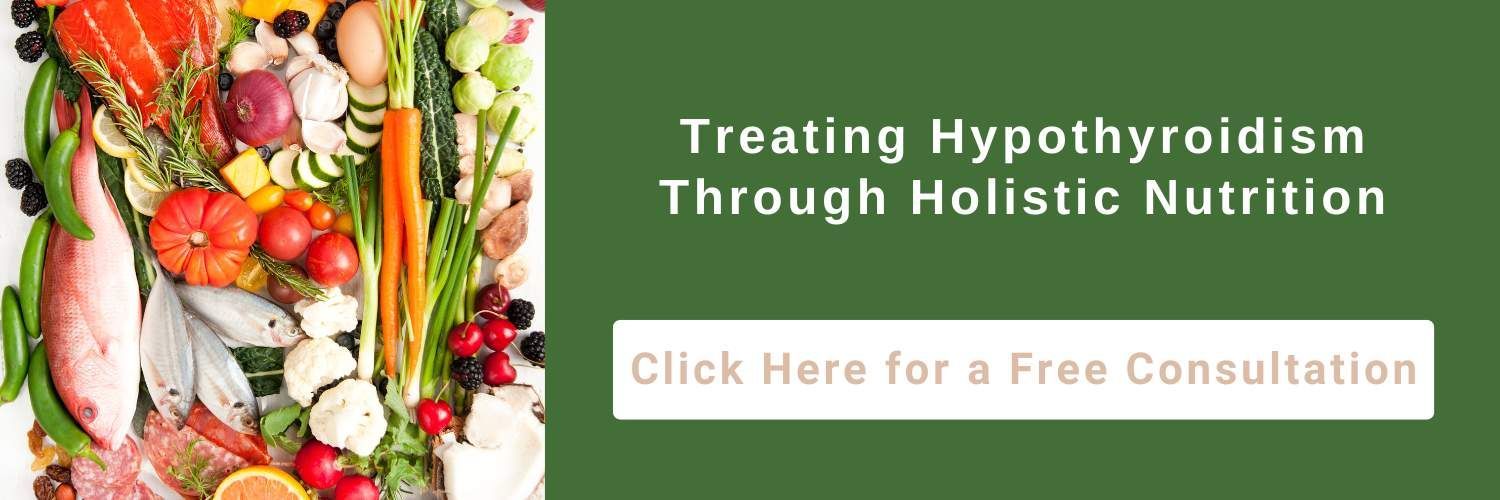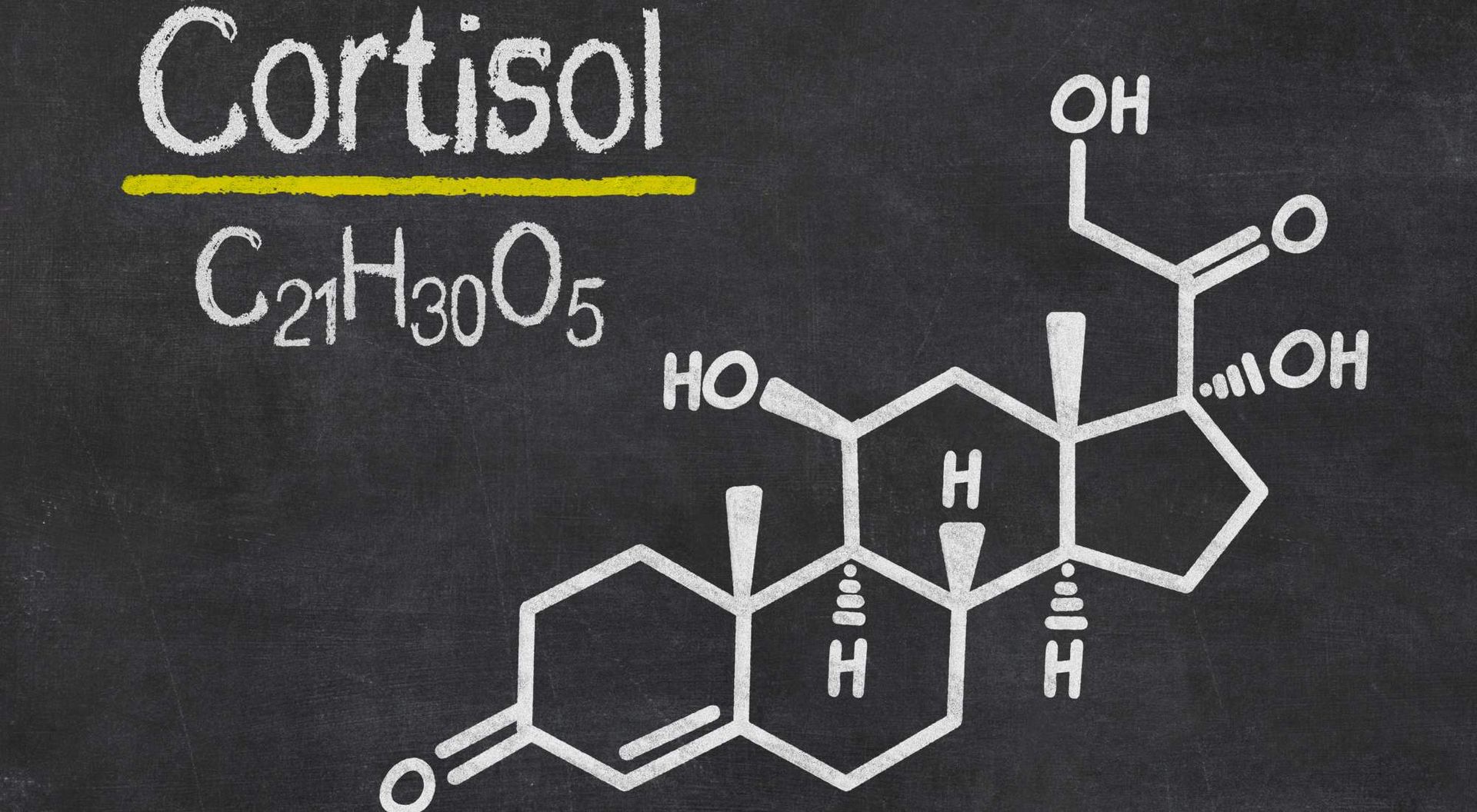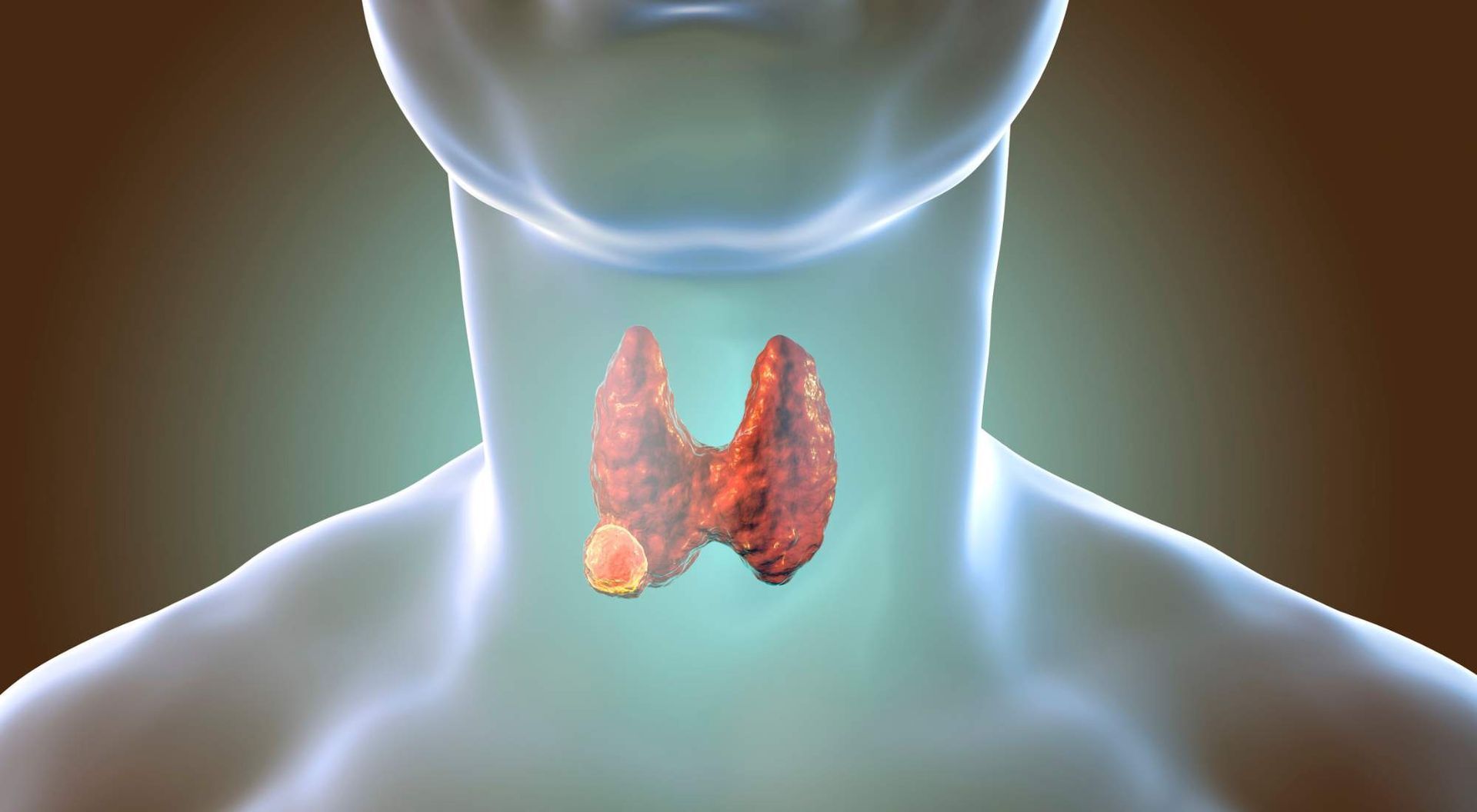Cushing’s Syndrome and Hypothyroidism: A Comprehensive Comparison
"The content below is not intended to be a substitute for professional medical advice, diagnosis, or treatment. Always seek the advice of your physician or other qualified health provider with any questions you may have regarding a medical condition."
Noticing changes in your body can be stressful, terrifying, and potentially life-changing.
You may have heard of Cushing’s syndrome and hypothyroidism, or maybe you’re currently awaiting test results for one or the other, or both.
We all play internet doctor with Google from time to time, but plugging your symptoms and these diseases into the internet can yield some pretty scary results, which may worsen your fears and anxieties.
To help calm your nerves, we’ll discuss the definition, causes, symptoms, diagnoses, and treatments of both Cushing’s syndrome and hypothyroidism, explore their relationship, and discuss how nutrition may help manage the symptoms of both diseases.
Table of Contents
Does Hypothyroidism Cause Cushing’s Syndrome?
There is no conclusive evidence that hypothyroidism causes Cushing’s syndrome or vice versa. Both conditions involve hormones. However, these hormones have entirely different functions that are not related.
Comparing Hypothyroidism and Cushing’s Syndrome: Definitions, Causes, Symptoms, Diagnoses, and Treatments
To understand the similarities and differences between hypothyroidism and Cushing’s syndrome, let's explore the causes, symptoms, and treatments of each.
At HealthierU, we understand how frustrating disorders like hypothyroidism and Cushing’s syndrome can be. On top of the stress of managing a disease, you also probably don’t feel very well.
And when we don’t feel well, we don’t eat well.
Are you looking to help your body fall in love with food again? Would you like to supplement your current hypothyroidism and Cushing’s syndrome treatments with a more holistic approach?
If so, Dr. Donna Sergi at HealthierU would like to invite you to learn more about the power of nutrition and its influence on symptom management. Request a nutrition consultation today.
Definitions
What Is Hypothyroidism?
The thyroid is a butterfly-shaped organ at the base of your neck. It is responsible for producing three hormones:
- Thyroxine (T4)
- Triiodothyronine (T3)
- Calcitonin
T3 and T4 primarily regulate metabolic processes which help control how your body stores and uses energy. These hormones also help control other processes, such as:
- Breathing
- Heart function
- Nervous system function
- Body temperature
- Cholesterol level
- Weight gain
- Brain development
- Moisture in the skin
- Menstruation
Calcitonin regulates the amount of calcium in the blood, which plays a vital role in blood clotting, muscle contraction, and maintaining heart rhythm and nerve function.
Hypothyroidism happens when the thyroid has decreased function and has limited or no ability to produce thyroid hormones.
It is estimated that nearly
5% of Americans ages 12 and up have been diagnosed with hypothyroidism. Typically, the disease is most common in
women over the age of 60.
What Is Cushing’s Syndrome?
Cushing’s syndrome is a hormone disorder that causes the body to produce too much cortisol for extended periods. This results in physical and mental changes in the body.
There are two main types of Cushing’s syndrome:
- Exogenous Cushing Syndrome: This is the most common cause of exogenous Cushing syndrome. Exogenous means “having an external origin.” The term is used to indicate that the disorder is caused by something outside of the body and may resolve once the cause has been removed. Only 10 to 15 out of every million of Americans are diagnosed with exogenous Cushing’s syndrome annually.
- Endogenous Cushing Syndrome: This form of Cushing’s syndrome is generally rare. Endogenous means “coming from inside the body.” This means something inside the body is causing cortisol levels to rise and remain high. Endogenous Cushing’s syndrome affects 1 out of 588,235 to 833,333 individuals per year.
You may also have heard of Cushing’s disease, which is a specific type of endogenous Cushing’s syndrome.
Causes
What Causes Hypothyroidism?
Hypothyroidism may commonly be caused by:
- Autoimmune disease: The most common cause of hypothyroidism is an autoimmune disease called Hashimoto’s. This disease causes the immune system to attack the thyroid, resulting in damage that limits its function.
- Thyroid surgery: Surgeries that require the removal of part or the entire thyroid may cause a cessation or lack of thyroid hormone production.
- Radiation therapy: Radiation treatments may impact thyroid function.
- Thyroiditis: Thyroiditis causes inflammation of the thyroid, which may be due to infection or an autoimmune disorder. When this happens, the thyroid releases all of its hormones at once, causing a brief period of hyperactivity. Afterwards, the thyroid may become inactive.
- Medication: Certain medications, such as lithium, may negatively impact the thyroid.
Less common causes of hypothyroidism may include:
- Lack of iodine
- Pregnancy
- Genetics
- Pituitary disorders
What Causes Cushing’s Syndrome?
Exogenous Cushing’s syndrome is most commonly caused by taking glucocorticoids for extended periods of time. Prolonged use at high doses may often cause an excess amount of cortisol in the body.
Glucocorticoids are a class of corticosteroids (a class of steroid hormones like cortisol) that are naturally produced from the cortex of the adrenal glands. Glucocorticoid medicines are often prescribed to fight inflammation and assist your immune system to fight against a wide array of health issues.
They are most often prescribed to treat illnesses such as:
- Asthma
- Allergies
- Autoimmune disorders
- Lupus
- Rheumatoid Arthritis
Endogenous Cushing’s syndrome is generally caused by the presence of an adrenocorticotropic hormone (ATCH)-producing tumor, typically on the pituitary glands or another organ.
ACTH controls how much cortisol is produced by the adrenal glands. The presence of a tumor may instigate an overproduction of cortisol, which causes an excess as the body can’t manage to get rid of it all quickly enough.
Symptoms
What Are the Symptoms of Hypothyroidism?
According to the National Institutes of Health (NIH), common symptoms of hypothyroidism may include:
- Fatigue
- Weight gain
- Trouble tolerating cold
- Joint and muscle pain
- Dry skin or dry, thinning hair
- Change in voice
- Constipation
- Heavy or irregular menstrual periods or fertility issues
- Slowed heart rate
- Depression
Hypothyroidism develops slowly, so symptoms may not appear for months or even years. Even then, it may be uncommon that they appear all at once.
The severity of symptoms may vary between individuals and the progression of the disease.
What Are the Symptoms of Cushing’s Syndrome?
According to the National Institute of Neurological Disorders and Stroke (NINDS), common Cushing's syndrome symptoms are:
- Upper body obesity
- Severe fatigue
- High blood pressure
- Backache
- Elevated blood sugar
- Easy bruising
In women, symptoms of Cushing’s syndrome may include increased facial and body hair growth and irregular or ceased menstruation.
Physiological attributes may also be indicators of Cushing’s. These physical signs may include:
- Round face
- Thin arms and legs
- A fatty lump between the shoulders and neck
- Bluish-red stretch marks on the skin
Diagnoses
How Is Hypothyroidism Diagnosed?
Since many other diseases share the same symptoms, hypothyroidism cannot be diagnosed by examination alone. Several blood tests that determine thyroid function and hormone levels must be used to diagnose it.
The following tests help track the levels of thyroid hormones and antibodies in the blood:
- Thyroid stimulating hormones (TSH) test: High TSH levels typically indicate hypothyroidism.
- Thyroid antibody test: High levels of thyroid antibodies may indicate thyroid dysfunction.
- T4 test: Low T4 levels generally indicate hypothyroidism.
- T3 test:
High T3 levels typically indicate hypothyroidism (even if T4 levels are normal).
How Is Cushing’s Syndrome Diagnosed?
Like hypothyroidism, Cushing’s syndrome also shares similar symptoms to other diseases, which makes it hard to diagnose by examination alone.
An endocrinologist may be initially perform an examination to look for the physical signs of Cushing's (signs such as a round face, a hump on the back of the neck, and thin, bruised skin with stretch marks, etc.) before ordering a series of tests to measure the cortisol levels in the body.
These tests may include:
- Blood and urine tests: If your body produces abnormal amounts of cortisol, ACTH, or other hormones, it may be detected through your urine or blood. You may be asked to collect urine for up to 24 hours.
- Saliva test: Cortisol levels tend to fall and rise throughout the day, generally dropping during the evening for unaffected people. If your endocrinologist suspects you have Cushing’s, you may be asked to have a small sample of saliva collected during the night to see if your cortisol levels are still high.
- Imaging tests: A CT or MRI scan may be used to detect tumors in the adrenal or pituitary gland. These tumors may be associated with Cushing’s syndrome.
- Inferior petrosal sinus sampling:
This test is performed to determine where the ACTH is being produced (whether due to a pituitary adenoma or another ACTH-producing tumor in another organ. For the test, blood samples are taken through tubes that drain veins leading to the pituitary gland; these veins are called the inferior petrosal sinuses.
Treatments
What Are Possible Treatments for Hypothyroidism?
To treat hypothyroidism, you may be prescribed a thyroid hormone medicine called levothyroxine. This medication will supplement the lack of thyroid hormones due to your underactive thyroid.
Hormone replacement therapy is the most common and effective treatment for hypothyroidism. However, symptoms of the disease may be better managed with the proper nutrition.
HealthierU and Dr. Donna Sergi have been helping individuals use the power of food to fight back against thyroid disorders. We understand how difficult it can be to live with health issues like hypothyroidism and Cushing’s syndrome.
While medical treatments are effective, they don’t always manage the symptoms. HealthierU wants to help you supplement your current treatment plan with something you do every day — eating!
We all love to eat.
We all have to eat.
So why not learn how to love eating what your body needs,
and what your hypothyroidism will hate?
Find out how you may be able to use nutrition as a
natural treatment for hypothyroidism symptoms with the help of HealthierU.
What Are Possible Treatments for Cushing’s Syndrome?
Cushing’s syndrome will require medical intervention for successful treatment. Several of these treatment modalities may include:
- Reducing glucocorticoid use: If Cushing’s is caused by extended use of glucocorticoid steroids, your general practitioner may help you adjust your dose or taper you off slowly before exploring alternative options. It is imperative that you do not do this on your own or cease the drug abruptly because your body may stop producing cortisol altogether.
- Surgery: If Cushing’s is caused by a tumor, a neurosurgeon may perform the operation by removing it through your nose. If an ACTH-producing tumor is not found or cannot be removed, it may be recommended that you have a bilateral adrenalectomy to remove your adrenal glands. Once both adrenal glands are removed, you will need to take hormones to replace your cortisol and other adrenal hormones for the rest of your life.
- Radiation therapy: If the ACTH-producing tumor cannot yet be removed, you may need radiation to replace or supplement treatment.
- Medications:
Medications may be prescribed to control cortisol levels when surgery or radiation is not an option or does not work. They may also be used to supplement radiation therapy or surgery to improve the odds of success.
- Ketoconazole
- Osilodrostat (Istarisa)
- Mitotane (Lysodren)
- Levoketoconazole (Recorlev)
- Metyrapone (Metopirone)
- Mifepristone (Korlym, Mifeprex)
- Pasireotide (Signifor)
Without treatment, Cushing’s syndrome may be fatal due to health issues caused by the disease, such as:
- Infections
- Heart attack
- Stroke
- Blood clots (especially in the lungs and legs)
Other health complications that may be a result of Cushing’s are:
- Bone loss and fractures
- High blood pressure
- Unhealthy cholesterol levels
- Depression or other mood changes
- Memory loss or difficulty concentrating
- Insulin resistance and prediabetes
- Type 2 diabetes
Untreated Cushing’s syndrome is often associated with a poor prognosis. Without proper treatment, the survival rate for five years is 50%, though this may be improved to 86% after a bilateral adrenalectomy.
Medical intervention is required to treat Cushing’s syndrome. However, treatment may be supplemented with diet, nutrition, exercise, and stress management to improve Cushing’s symptoms.
Are Hypothyroidism and Cushing’s Syndrome Related?
Empirical evidence suggests that hypothyroidism and Cushing’s syndrome may be loosely related.
In clinical experience, patients with Cushing's syndrome may typically have a prevalence of thyroid diseases such as hypothyroidism. According to one 2021 study, an evaluation of 59 patients with CS found that 30.5% had goiter, 23.7% had primary subclinical hypothyroidism, and 8.4% had hyperthyroidism.
Generally, a resolution of hypercortisolism may also trigger autoimmune diseases like hypothyroidism and Hashimoto’s disease. Cushing’s may have an indirect impact on thyroid function, and some Cushing’s treatments may also impact thyroid function.
Cushing’s syndrome and hypothyroidism are also common in middle-aged women, so the prevalence of both may be a coincidence. Hypercortisolism due to Cushing’s may mask thyroid disorders.
The Hypothalamus-Pituitary-Thyroid Axis
The hypothalamus-pituitary-thyroid axis is an intricate neuroendocrine mechanism that mediates numerous physiological functions, such as the immune system, metabolic processes, and the autonomic nervous system.
It activates in response to stress and causes a secretion of glucocorticoids (like cortisol). In response, the thyroid produces more thyroid-stimulating hormones (TSH) as a direct result of cortisol on the pituitary thyrope (a collection of endocrine cells in the anterior pituitary that produce thyroid-stimulating hormone (TSH)).
The hypothalamus-pituitary-thyroid axis affects both Cushing’s and hypothyroidism because acute stress impacts both cortisol and TSH production. This means that stress management is extremely important in managing the symptoms of both disorders.
Treat Hypothyroidism and Manage Symptoms With HealthierU’s Approach to Holistic Nutrition
While nutrition alone may not be able to treat hypothyroidism and Cushing’s syndrome, it can be used as a powerful tool to help manage the disease and improve symptoms.
These diseases majorly affect the lives of women across the country. As a women's health and wellness specialist, Dr. Donna Sergi has been helping individuals use a holistic approach to identify and alleviate disease and disorder symptoms for many years.
Diet and nutrition have the power to influence how we live our lives and how our immune system and body respond to ailments. HealthierU wants to help you harness that power to regain control over your hypothyroidism and Cushing’s syndrome.
Learn more or schedule your first appointment today.
HealthierU
Natural Nutritionist Brooklyn
126 Avenue U
Brooklyn, NY, 11223
(718) 375-4355
Office Hours
- Monday
- Closed
- Tue, Fri
- -
- Wednesday
- - -
- Thursday
- -
- Sat - Sun
- Closed






